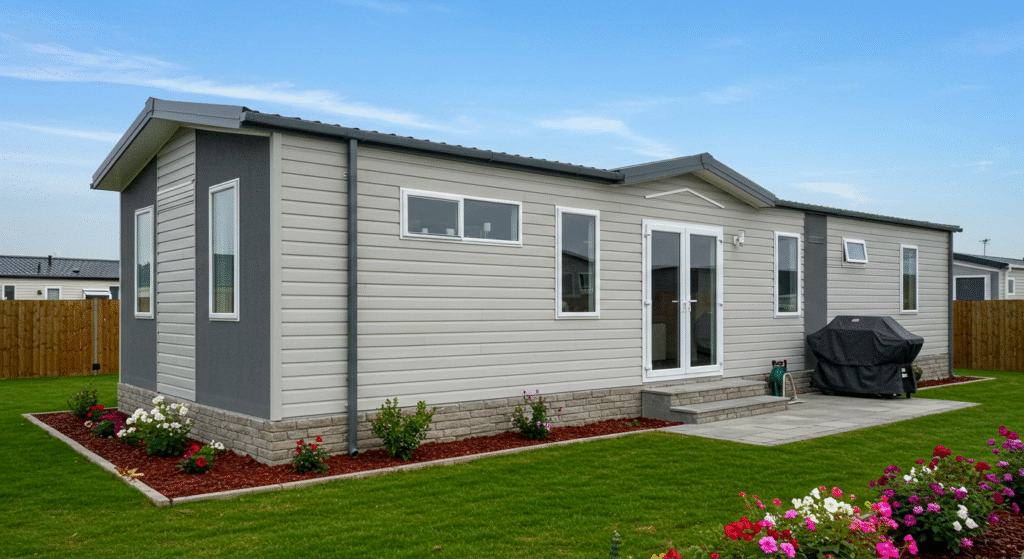Introduction: Why the Surge in Mobile Home Interest?
Finding an affordable home feels a bit like hunting for a four-leaf clover—possible, but rare. Rising housing costs, limited inventory, and stricter mortgage requirements have made traditional homeownership feel out of reach for many individuals and families. That’s where mobile homes step into the spotlight: they’re cost-effective, versatile, and often surprisingly stylish.
Whether you’re a first-time buyer, a downsizer looking for a low-maintenance lifestyle, or a family eager to stretch your dollar without sacrificing comfort, mobile homes offer real solutions. Today’s homes are modern, energy-efficient, and come with community perks that rival traditional housing.
In this guide, you’ll learn everything about mobile homes—from types, costs, and financing, to legal considerations, investment tips, and FAQs. By the end, you’ll know if a mobile home could be your next smart move.
What is a Mobile Home?
A mobile home (also called a manufactured home) is a factory-built residence constructed according to the U.S. Department of Housing and Urban Development (HUD) Code, established in 1976.
Mobile vs. Manufactured Homes
- Mobile Homes: Built before June 15, 1976, with less stringent building codes.
- Manufactured Homes: Built after June 15, 1976, must comply with HUD Code—ensuring higher quality construction and safety.
Key Characteristics
- Built in climate-controlled factories
- Transported to permanent or semi-permanent locations
- Constructed on a steel chassis for transportability
- Must meet HUD construction standards
- Available in single-wide, double-wide, or triple-wide designs
Types of Mobile Homes
Single-Wide
- Typically 600–1,300 sq. ft.
- Width: 14–18 feet; Length: up to 90 feet
- Most affordable option, best for individuals, couples, or small families
Double-Wide
- 1,000–2,300 sq. ft.
- Created by joining two single-wides
- Spacious layouts, multiple bedrooms/bathrooms
- Popular for families; better resale value than single-wides
Triple-Wide & Multi-Section
- 2,000–3,000+ sq. ft.
- Luxury features like island kitchens, walk-in closets, spa-style baths
- Comparable to site-built homes at a fraction of the cost
Why Consider a Mobile Home? Benefits You Can’t Ignore
- Affordability: 30–50% cheaper per sq. ft. than traditional homes.
- Flexibility: Place on rented lots, private land, or communities.
- Energy Efficiency: Modern designs meet ENERGY STAR standards.
- Quick Move-In: Built in factories, avoiding weather delays.
- Community Living: Parks often include pools, clubhouses, and events.
The Challenges: What to Watch Out For
- Depreciation: Homes may lose value, especially on rented land.
- Financing Hurdles: Harder to get traditional mortgages.
- Zoning Restrictions: Local laws may limit placement.
- Stigma: Outdated perceptions still exist.
How Much Do Mobile Homes Cost?
| Type | Size (sq. ft.) | Average Price Range |
|---|---|---|
| Single-Wide | 600–1,200 | $40,000–$70,000 |
| Double-Wide | 1,000–2,200 | $90,000–$150,000 |
| Triple-Wide | 2,000–3,000+ | $150,000–$250,000 |
Additional Costs to Plan For:
- Lot rent: $300–$800/month
- Utility hookups: $3,000–$10,000
- Maintenance/insurance: $500–$1,500/year
- Moving: $5,000–$15,000
Financing a Mobile Home
Chattel Loans
- For homes not permanently affixed to land
- Easier qualification, higher interest (7–12%), shorter terms
FHA Loans
- For HUD-standard homes
- 3.5% down, competitive interest rates
- Must be permanently affixed to land (owned or leased)
VA Loans
- For veterans and active-duty members
- No down payment, favorable terms
- May include land purchase
Conventional Mortgages
- Best rates, but only if home is on a permanent foundation and classified as real estate
👉 Pro Tip: Owning land significantly improves financing options and resale potential.
Placement Options: Where Can You Put Your Mobile Home?
Mobile Home Parks
Pros:
- Established infrastructure (utilities, roads, amenities)
- Community feel, recreational facilities
- Professional management
What to Check:
- Lot rent and fees
- Lease terms and tenant rights
- Community reputation
Private Land Ownership
Benefits:
- Full control and no monthly lot rent
- Land appreciation potential
- Freedom to expand or remodel
Considerations:
- Zoning regulations and permits
- Utility hookup availability
- Soil and drainage issues
Legal Considerations
- HUD Code Compliance: Homes built after 1976 meet federal safety standards.
- Local Zoning Laws: Placement, setbacks, foundations, and permits vary by location.
- Title & Registration: Mobile homes require a title, similar to a vehicle. Converting to real property requires permanent installation.
- Insurance: Must be appropriate to land and structure type.
Buying New vs. Used Mobile Homes
New Homes
- Pros: Modern design, warranties, compliance with latest standards
- Cons: Higher cost, initial depreciation
Used Homes
- Pros: Lower upfront cost, immediate availability
- Cons: May need repairs, outdated codes
Investment Tips: Maximizing Value
- Choose homes built after 1990; Energy Star certified models preferred
- Double-wides tend to appreciate better than single-wides
- Open layouts and multiple bathrooms increase resale value
- Renovations that boost value: kitchen/bath updates, energy-efficient windows, exterior upgrades
Mobile Home Living Tips for Families
- Maximize storage with multipurpose furniture
- Improve energy efficiency with insulation and skirting
- Anchor homes properly for storm safety
- Add porches, decks, and landscaping for curb appeal
FAQs About Mobile Homes
1. Do mobile homes appreciate in value?
Generally, they depreciate, especially on rented land. But newer homes on owned land in strong markets can appreciate.
2. What’s the difference between a mobile home and a modular home?
Mobile homes follow HUD Code and can be relocated. Modular homes follow local building codes, are permanently placed, and treated as real estate.
3. How much does it cost to move a mobile home?
Usually $5,000–$15,000 depending on size, permits, and distance.
4. Can I get a conventional mortgage?
Yes, if the home is permanently affixed to owned land and classified as real property.
5. What should I check when buying a used home?
Roof, plumbing, electrical, and structural integrity. Look for water damage and confirm compliance with current safety standards.
6. Are mobile homes safe during storms?
Modern homes meet HUD wind/safety standards. Proper anchoring and storm preparation are essential.
Conclusion: Is a Mobile Home Right for You?
Mobile homes have come a long way from outdated stereotypes. They’re affordable, versatile, and designed for modern living. While financing and regulations can be challenging, they provide a realistic path to homeownership for millions.
If you want affordability, flexibility, and comfort—without the burden of a traditional mortgage—mobile homes might be your best option.
👉 Ready to explore further? Visit local dealers, research community options, and compare financing to find your perfect fit.

